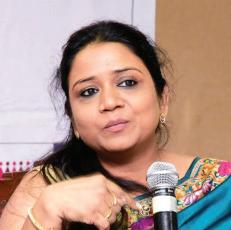
Supreme Court Sets New Precedent


Supreme Court Sets New Precedent
Supreme Court Sets New Precedent


In a landmark decision, the Supreme Court of India reversed a Delhi High Court ruling that had rejected the bail application of K Kavitha under the Prevention of Money Laundering Act (PMLA), 2002. The case, titled Kalvakuntla Kavitha v. Directorate of Enforcement [2024] 165 taxmann.com 794 (SC), ignited significant discourse on the interpretation and enforcement of legal standards concerning bail under Section 45(1) of the PMLA, particularly with regard to women.
K Kavitha, a prominent political figure and accomplished individual, became embroiled in allegations of money laundering. Following her arrest, she applied for bail, citing the first proviso to Section 45(1) of the PMLA, 2002, which permits conditional bail for certain demographics, including women, minors, and the infirm. Despite this, the Delhi High Court's Single Judge denied her bail, arguing that her influential status and capabilities rendered her ineligible for consideration under the "vulnerable" category.
Section 45(1) of the PMLA stipulates strict prerequisites for granting bail to individuals charged under this statute. Nevertheless, the first proviso introduces exceptions, granting courts the authority to approve bail for women, minors, the ill, or those implicated in laundering amounts below ₹1 crore. The central issue in Kavitha's case was whether this proviso was applicable to a well-educated and politically involved woman like K Kavitha.
3.1 Section 45(1) of the Prevention of Money Laundering Act, 2002 read as follows
Notwithstanding anything contained in the Code of Criminal Procedure, 1973, no person accused of an offence under this Act, shall be released on bail or on his own bond unless—
(a) the Public Prosecutor has been given an opportunity to oppose the application for such release; and
(b) where the Public Prosecutor opposes the application, the court is satisfied that there are reasonable grounds for believing that he is not guilty of such an offence and that he is not likely to commit any offence while on bail.
3.1.1 First Proviso to Section 45(1) of the PMLA read as follows
The proviso, which allows the court discretion to grant bail, where the appellant is a woman or belongs to any of the other categories mentioned, states that:
"Provided that a person, who, is under the age of sixteen years, or is a woman or is sick or infirm, or is accused either on his own or along with other co-accused of money-laundering a sum of less than one crore rupees, may be released on bail, if the Special Court so directs"
In this case, the appellant sought to challenge the ruling of the High Court of Delhi, where the Single Judge had rejected her bail plea under the first proviso to Section 45(1) of the Prevention of Money Laundering Act (PMLA), 2002. The contention was rooted in her arrest related to charges of money laundering, with her bail application asserting her eligibility for special consideration as a woman under the said proviso.
Despite her plea, the Single Judge issued an adverse order, declining to grant bail. In dismissing the application, the judge referenced the precedent set in Saumya Chaurasia v. Directorate of Enforcement. The interpretation that emerged was that the proviso applied exclusively to 'vulnerable women.' Given the appellant's extensive educational background and her significant political roles, including service as a Member of Parliament and Member of the Legislative Council, the court ruled that she did not fit the criteria of being 'vulnerable' as defined in the precedent, thus denying her the special provisions for bail under the PMLA.
The Single Judge acknowledged that K. Kavitha was a highly educated and accomplished individual with notable contributions to politics and social work in Telangana, as detailed in her legal submissions. Her educational background and societal efforts were impressive and uncontested by the investigating agencies.
However, the core of the bail decision hinged on the severe allegations and evidence presented by the prosecution, which purportedly outlined her involvement in the offenses under scrutiny. Despite her laudable accomplishments, the court had to consider these serious charges which prima
facie implicated her as a key figure in the scheme related to the implementation of Delhi's new Excise Policy. It was suggested that other accused acted under her directives, reinforcing her central role in the alleged conspiracy.
In her bail application, the appellant herself emphasized her educational and professional stature. The court, drawing upon the Supreme Court's rationale in Saumya Chaurasia, concluded that the special bail provisions under Section 45(1) of PMLA were designed to protect 'vulnerable women'—a category that the court ruled did not apply to Kavitha. Vulnerable women, as intended by the legislature, are those who might be exploited to commit offenses, rather than those in positions of power and influence like Kavitha.
Therefore, the Single Judge decided that K. Kavitha did not qualify for the bail relief provided under the proviso to Section 45(1) of the PMLA, given her prominent and influential status, which did not align with the legislative intent of the proviso.
The Supreme Court, revisiting its observations in the case of Saumya Chaurasia, underscored the necessity for courts to approach the first proviso to Section 45(1) of the Prevention of Money Laundering Act (PMLA) with sensitivity and sympathy. The proviso aims to protect certain vulnerable groups, such as young individuals and women, who might be exploited by malevolent actors and wrongfully implicated in crimes. This emphasis contrasts sharply with the narrower interpretation that the proviso applies solely to 'vulnerable women.'
Initially, the Supreme Court highlighted that the proviso allows for bail for specified categories, including women, without necessarily meeting the stringent conditions set under Section 45 of the PMLA, contingent on the specifics of each case. Importantly, the court pointed out that when legislation affords special consideration to a particular group, any decision to deny such benefits must be accompanied by well-founded reasons.
The Supreme Court criticized the Delhi High Court's Single Judge for a misapplication of the principles established in the Saumya Chaurasia case. It noted that contemporary society sees educated and prominent women actively participating in business and sometimes, whether intentionally or not, becoming involved in unlawful activities. This reality calls for a prudent and judicious exercise of discretion by the courts in such matters.
Additionally, the Supreme Court clarified that being highly educated or holding significant political office, such as being a Member of Parliament or the Legislative Assembly, does not automatically disqualify a woman from the protections intended by the proviso to Section 45(1) of the PMLA. This interpretation ensures that the law's protective measures are applied equitably and based on the substantive merits and circumstances of each case.
The Supreme Court determined that the Single Judge had fundamentally erred in interpreting the first proviso to Section 45(1) of the Prevention of Money Laundering Act (PMLA) as applicable only to a 'vulnerable woman'. Consequently, the judgment to deny bail was deemed incorrect and the order was set aside. The appellant was granted immediate release on bail upon submitting bail bonds worth Rs. 10 lakhs.
Moreover, the Court emphasized the principle that 'bail is the rule, and refusal is the exception', affirming that the right to liberty under Article 21 of the Constitution prevails over statutory limitations. Additionally, the Court mandated that the appellant surrender her passport and refrain from any actions that could tamper with evidence or influence witnesses.
This judgment illustrates the critical balance the judiciary must maintain between enforcing statutory mandates and upholding fundamental rights. The Supreme Court's decision highlights the necessity for the law to be applied consistently, regardless of an individual's social, educational, or political status. By overturning the High Court's decision, the Supreme Court reinforced that the discretionary powers provided by the first proviso to Section 45(1) of the PMLA, 2002, should be exercised with careful judgment, avoiding narrow and subjective interpretations of who qualifies as vulnerable.
This case serves as a reminder that while the courts can take into account the personal achievements and character of an individual, these should not detract from the entitlements established under the law. The ruling underscores the fundamental nature of the right to bail, particularly where statutes expressly permit it, insisting that any refusal must be justified with solid legal rationale.
Overall, this ruling fortifies the judiciary's role in protecting individual rights against potential misuse of authority, ensuring that fairness and justice remain central in the application of the law.


Founded 1972


Evolution From a small family business to a leading technology-oriented Publishing/Product company


Expansion

Launch of Taxmann Advisory for personalized consulting solutions

Aim
Achieve perfection, skill, and accuracy in all endeavour

Growth
Evolution into a company with strong independent divisions: Research & Editorial, Production, Sales & Marketing, and Technology

Future
Continuously providing practical solutions through Taxmann Advisory
Editorial and Research Division
Over 200 motivated legal professionals (Lawyers, Chartered Accountants, Company Secretaries)
Monitoring and processing developments in judicial, administrative, and legislative fields with unparalleled skill and accuracy
Helping businesses navigate complex tax and regulatory requirements with ease

Over 60 years of domain knowledge and trust
Technology-driven solutions for modern challenges
Ensuring perfection, skill, and accuracy in every solution provided
Corporate Tax Advisory
Trusts & NGO Consultancy
TDS Advisory
Global Mobility Services
Personal Taxation
Training
Due Diligence
Due Dilligence
Advisory Services
Assistance in compounding of offences
Transactions Services
Investment outside India
Goods
Transaction Advisory
Business Restructuring
Classification & Rate Advisory
Due Diligence
Training
Trade Facilitation Measures
Corporate
Corporate Structuring
VAT Advisory
Residential Status

Naveen Wadhwa
Research and Advisory [Corporate and Personal Tax]
Chartered Accountant (All India 24th Rank)
14+ years of experience in Income tax and International Tax
Expertise across real estate, technology, publication, education, hospitality, and manufacturing sectors
Contributor to renowned media outlets on tax issues

Vinod K. Singhania Expert on Panel | Research and Advisory (Direct Tax)
Over 35 years of experience in tax laws
PhD in Corporate Economics and Legislation
Author and resource person in 800+ seminars

V.S. Datey Expert on Panel | Research and Advisory [Indirect Tax]
Holds 30+ years of experience
Engaged in consulting and training professionals on Indirect Taxation
A regular speaker at various industry forums, associations and industry workshops
Author of various books on Indirect Taxation used by professionals and Department officials

Manoj Fogla Expert on Panel | Research and Advisory [Charitable Trusts and NGOs]
Over three decades of practising experience on tax, legal and regulatory aspects of NPOs and Charitable Institutions
Law practitioner, a fellow member of the Institute of Chartered Accountants of India and also holds a Master's degree in Philosophy
PhD from Utkal University, Doctoral Research on Social Accountability Standards for NPOs
Author of several best-selling books for professionals, including the recent one titled 'Trust and NGO's Ready Reckoner' by Taxmann
Drafted publications for The Institute of Chartered Accountants of India, New Delhi, such as FAQs on GST for NPOs & FAQs on FCRA for NPOs.
Has been a faculty and resource person at various national and international forums

the UAE
Chartered Accountant (All India 36th Rank)
Has previously worked with the KPMG

S.S. Gupta Expert on Panel | Research and Advisory [Indirect Tax]
Chartered Accountant and Cost & Works Accountant
34+ Years of Experience in Indirect Taxation
Bestowed with numerous prestigious scholarships and prizes
Author of the book GST – How to Meet Your Obligations', which is widely referred to by Trade and Industry

Sudha G. Bhushan Expert on Panel | Research and Advisory [FEMA]
20+ Years of experience
Advisor to many Banks and MNCs
Experience in FDI and FEMA Advisory
Authored more than seven best-selling books
Provides training on FEMA to professionals
Experience in many sectors, including banking, fertilisers, and chemical
Has previously worked with Deloitte
Taxmann Delhi
59/32, New Rohtak Road
New Delhi – 110005 | India
Phone | 011 45562222
Email | sales@taxmann.com
Taxmann Mumbai
35, Bodke Building, Ground Floor, M.G. Road, Mulund (West), Opp. Mulund Railway Station
Mumbai – 400080 | Maharashtra | India
Phone | +91 93222 47686
Email | sales.mumbai@taxmann.com
Taxmann Pune
Office No. 14, First Floor, Prestige Point, 283 Shukrwar Peth, Bajirao Road, Opp. Chinchechi Talim, Pune – 411002 | Maharashtra | India
Phone | +91 98224 11811
Email | sales.pune@taxmann.com
Taxmann Ahmedabad
7, Abhinav Arcade, Ground Floor, Pritam Nagar Paldi
Ahmedabad – 380007 | Gujarat | India
Phone: +91 99099 84900
Email: sales.ahmedabad@taxmann.com
Taxmann Hyderabad
4-1-369 Indralok Commercial Complex Shop No. 15/1 – Ground Floor, Reddy Hostel Lane Abids
Hyderabad – 500001 | Telangana | India
Phone | +91 93910 41461
Email | sales.hyderabad@taxmann.com
Taxmann Chennai No. 26, 2, Rajan St, Rama Kamath Puram, T. Nagar
Chennai – 600017 | Tamil Nadu | India
Phone | +91 89390 09948
Email | sales.chennai@taxmann.com
www.taxmann.com
Taxmann Bengaluru
12/1, Nirmal Nivas, Ground Floor, 4th Cross, Gandhi Nagar
Bengaluru – 560009 | Karnataka | India
Phone | +91 99869 50066
Email | sales.bengaluru@taxmann.com
Taxmann Kolkata Nigam Centre, 155-Lenin Sarani, Wellington, 2nd Floor, Room No. 213
Kolkata – 700013 | West Bengal | India
Phone | +91 98300 71313
Email | sales.kolkata@taxmann.com
Taxmann Lucknow
House No. LIG – 4/40, Sector – H, Jankipuram
Lucknow – 226021 | Uttar Pradesh | India
Phone | +91 97924 23987
Email | sales.lucknow@taxmann.com
Taxmann Bhubaneswar
Plot No. 591, Nayapalli, Near Damayanti Apartments
Bhubaneswar – 751012 | Odisha | India
Phone | +91 99370 71353
Email | sales.bhubaneswar@taxmann.com
Taxmann Guwahati
House No. 2, Samnaay Path, Sawauchi Dakshin Gaon Road
Guwahati – 781040 | Assam | India
Phone | +91 70866 24504
Email | sales.guwahati@taxmann.com